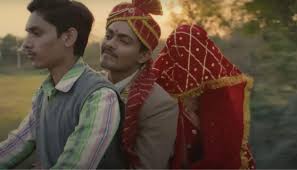The film portrays diverse, relatable women, highlighting societal expectations and prejudices with sociological insights, making a case for women’s empowerment.
Kiran Rao’s latest movie Laapata Ladies, released in March 2024, presents a solid case for women’s empowerment with gentle feminism that accommodates all kinds of women. The film serves as a pacifying antidote to films like Animal, which brandish toxic masculinity, casual sexism, misogyny, and the so-called ‘alpha-male.’
Set in 2001, the film portrays the lived realities of villagers, their struggles, and experiences as they go about their lives savoring the mundane. The simple yet overwhelming swap of similarly dressed brides with identical ghoonghats (veils) during a train journey prompts them to find their way back—and in the process, find themselves. The unconventional repercussions following the separation of the brides from their respective grooms, coupled with an important social message, form the plot of the film.
Ghoonghat: Marker of respect or erasure of identity
Phool (Nitanshi Goel) and Jaya (Pratibha Ranta), newly wedded brides with similar wedding attire and identical ghoonghats, get swapped during their train journey. The ghoonghat is used as a theatrical and literary device with its simplicity and humour to evoke emotions and tensions, problematizing the deep-rooted societal expectations of women. Many villages in India still uphold the culture of ghoonghat, where women are expected to cover their faces with a veil or the pallu of a saree as a sign of marital status and a symbol of modesty and respectability. The film uses the ghoonghat to question women’s identity.
For instance, Phool’s mother tells her to watch her steps and not look forward as she stumbles on the way with a covered face while leaving her home. She reminds Phool that a woman’s gaze should always be lowered, especially after donning the ghoonghat. Similarly, when Deepak (Sparsh Shrivastav) frantically searches for his lost wife Phool with a single photograph from his wedding, where Phool’s face is covered with a ghoonghat, a Muslim shopkeeper displeasingly responds, “Face hi toh sabkuch hota hai.
Face dhak dena matlab pehchaan dhak dena” (Face is everything. Covering it is like covering a person’s identity). Concurrently, the shopkeeper’s wife, fully covered in a pardha, enters to serve him tea, creating witty comic relief. Laapata Ladies beautifully and satirically portrays the burden of losing one’s identity through the act of covering one’s face.
Stree, sacrifice and selflessness
Societal expectations have confined women in many aspects of their lives. From ancient times, be it Sita or Victorian women, they have devoted themselves to duty, making selflessness and sacrifice synonymous with womanhood. Many customs and rituals with deep religious and cultural connotations are often regressive. For instance, the long history of ‘Sati’ in India, female circumcision in Africa, and foot binding in China have restricted women’s agency and imposed submissiveness. The weight of such sacrificial expectations has curtailed their desire to dream, accomplish, and choose themselves over others, as the idea of a ‘respectable woman,’ ‘ideal woman,’ or a woman from a good family has been used as a weapon of guilt.
Several subtle scenes in Laapata Ladies bring this issue to light, encouraging reflection on the unreasonable societal expectations casually imbibed by us. Firstly, Jaya is forced to give up her dream of pursuing education for marriage. Secondly, Deepak’s bhabhi dismisses her talent to create art with a nonchalant, “yeh fizool kaam ke liye samay hi kahan hai?” (Who has time for such futile things?), embodying a familiar sentiment and the plight of many women. This scene creates a deep impression of how women prioritize duty over desire and often associate contentment and success with being a good housewife.
Similarly, Deepak’s mother expresses how she relished an Indian dish made of lotus stems that her mother used to cook but stopped making it because Deepak and his father never touch it. When Jaya encourages her to cook the dish for herself, she reflexively responds, “Toh kaa ab auraton ke pasand ka khana banega?” (Since when do women cook based on their liking?). These scenes display how placing others’ needs over their own has been internalized, making self-care feel like a forbidden thought. The ideological womanhood from a patriarchal perspective, blurring the lines between selflessness and self-denial, is effortlessly conveyed in the film.
Marriage and gender inequality in Laapata Ladies
The institution of marriage in India, though imbued with spiritual and cultural significance representing social stability, also perpetuates gender inequality and domestic violence. While marriage was a blessing for Phool and Deepak, who found each other after unimaginable hardships and recurring chaos, it wasn’t the same for Jaya. Her marriage, perceived as an impediment to her aspirations for higher education, also unveiled the pressing issue of dowry and domestic violence dominating many marriages.
Amidst the juxtaposition of the two marriages, Manju (Chhaya Kadam), a middle-aged shopkeeper at the railway station, is a powerful character who chooses to live alone rather than tolerate disrespect in a toxic relationship. She opts for the road less travelled, choosing herself over her marriage and a troublesome husband who lived off her income and physically abused her.
As she says in the film, “Jo pyar kare he uka maarne ka hak hota hai. Ek din hum bhi ghumaake hak jataa diye” (A man who loves you has the right to hit you. So, I exercised my right as well). Manju’s decision to exercise her agency by dissolving her marriage makes a strong statement that women can overturn their tainted realities.
Laapata Ladies portrays diverse women and their individual yet relatable stories, highlighting the multifaceted societal expectations and prejudices they face with sociological insights, making a case for women’s empowerment. In addition to the weight of sacrifice falling disproportionately on women, gender inequality and other grave concerns hallmarking a patriarchal society, Laapata Ladies celebrates women, depicts the joy of female friendships, and the freedom that comes with daring to dream.

